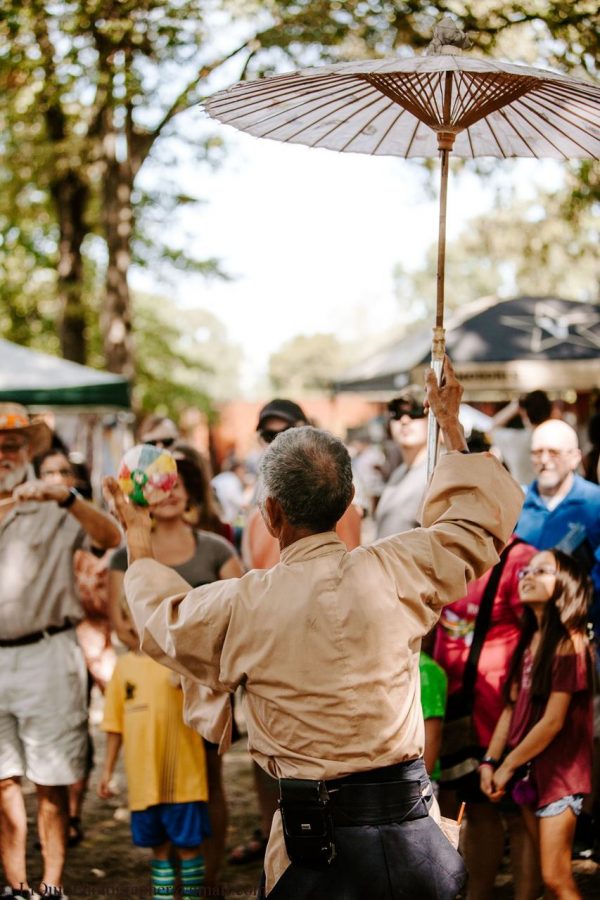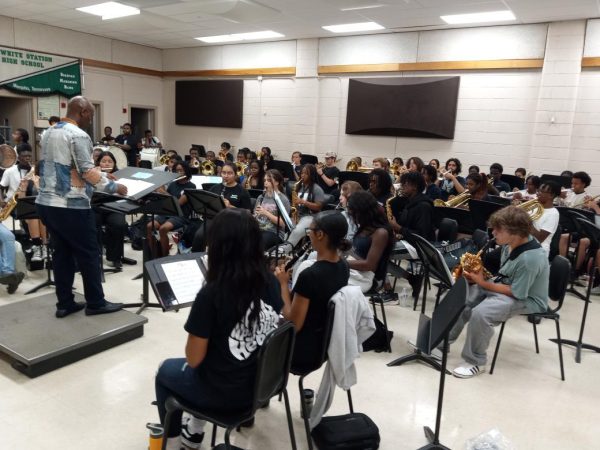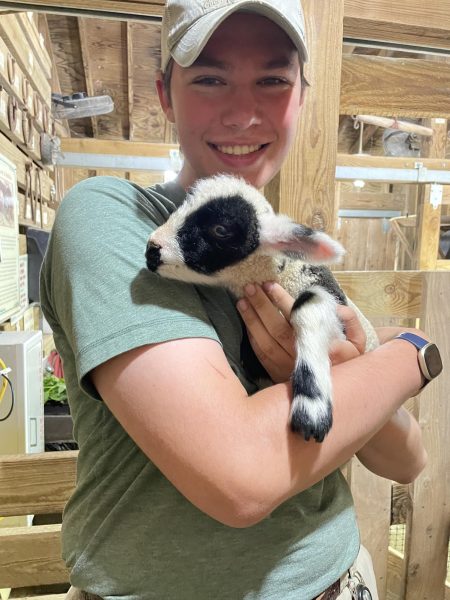Memphis Japan Festival: a celebration with art, music and food
Masaji Terasawa, “The Candyman,” performs magic tricks and tells stories to crowds at the Memphis Japan Festival. The festival took place on Nov. 7 where crowds enjoyed exploring the food park, performance areas and vendors.
The boom of the taiko drums resonates through the Botanic Garden as Harrison Moffatt (12) explores inviting merchandise booths and aromatic food trucks. After stopping to watch a street performer sculpt small animals out of taffy, Moffatt joins the crowd as they gather around the main stage in anticipation for the next performance.
The Memphis Japan Festival took place Sunday, Nov. 7 at the Memphis Botanic Garden. The annual event is a celebration of the country’s culture, art and history, entertaining and educating crowds through live performances, delicious food and diverse vendors.
“I think it’s overall really just a really fun time to get people interested in certain aspects of Japanese culture,” Benjamin Lappin (12) said. “There were lots of people asking questions at the stands, and I think they made it pretty broad and open to everyone.”
The open space of the gardens served as an ideal location for the festival, and tours of the garden’s displays of Japanese plant life were given during the early hours of the event.
“There’s already some Japanese presence at the Botanic Gardens,” Moffatt said. “In the spring they have cherry blossom viewing times, and that’s a very popular event in Japan. They already have some Japanese influence there, and the stage and the shade just make it a perfect space for this kind of event.”
Festival-goers could grab lunch at the food park, where trucks and tents were serving traditional Japanese meals and drinks. As the smells of ramen, fried rice and green tea filled the air, festival-goers gathered around the trucks, hoping to get a taste of the Japanese cuisine from local Memphis restaurants.
“There were some staple Japanese restaurants around Memphis that had their own stands,” Lappin said. “Robata had ramen and SEKISUI had a whole bunch of stuff. All of it smelled really nice.”
Around 30 exhibitors and vendors were present at the festival. Booths and tents displaying merchandise relating to Japanese culture and art were selling everything from manga to kimonos.
“There was a stand with t-shirts, figures and keychains, which I really enjoyed because it’s great for gifts,” Moffatt said. “My sister didn’t get to go, and she told me to buy her something, so I thought a keychain would be perfect, and she loved it.”
Throughout the entire duration of the festival, performances were occurring on and around the main stage. Traditional Japanese street performer, “The Candyman” traversed through the festival grounds, entertaining crowds with his one-man-show of stories, magic tricks and amezaiku (the ancient art of sculpting hot taffy into animal shapes). Multiple times throughout the day, the St. Louis Osuwa Taiko group’s display of the contemporary art of kumi-daiko (ensemble taiko drumming) drew audiences toward the stage. And while the musical performances continued on the main stage, martial arts demonstrations were taking place on the stage lawn with groups from Mid South Naginata, Memphis Goju-Ryu Karate and the Memphis Kendo and Iaido club.
“There were also several martial arts displays,” Moffatt said. “The one I was particularly interested in was the kendo, which is like Japanese fencing. [There] was a demonstration of that and they did some exercises and a practice match in the field they have there.”
Local Japanese rock band Kazha’s presence at the festival was a draw-in for many attendees. The band, founded by Kazuha Oda and Hideki Matushige, is currently touring the United States as an official ambassador of Music Export Memphis. Kazha achieves a culturally diverse sound blending together American and Japanese influences.
“Everybody was very excited, they were very happy and everyone loved [Kazha’s performance],” Lappin said. “People were cheering after every song. When Kazuha Oda asked people to shout and get noisy, people did so and they really enjoyed themselves. I enjoyed myself as well, so I can see why.”
The local Japanese-owned restaurants and businesses provided the event with authenticity, and the festival effectively educated Memphians on Japanese culture through engaging methods.
“They have all different kinds of things,” Moffatt said. “There’s not just anime stuff that you would see at a convention. They had a tea house as well and goldfish scooping, which is a popular booth at actual Japanese festivals. They have actual Japanese people involved in running it. There’s pretty authentic stuff and there’s a lot of time and effort that goes into it. The authenticity of the food and the information provided is just really genuine.”
The Memphis Japan Festival caters towards all demographics, featuring aspects of every part of the country’s culture. The event helped educate those interested in learning more about Japanese culture while providing an entertaining outing for those looking to have fun. The overall accessibility of the festival brought all different kinds of people together in the celebration of Japanese culture.
“It’s great for a large percentage of people,” Moffatt said. “If someone has any interest in learning anything about Japan, it’s a multigenerational kind of thing. It wasn’t geared towards one demographic. It was very,very inclusive, which I found to be a very good thing.”
Your donation will support the student journalists of White Station High School. Your contribution will allow us to purchase equipment and cover our annual website hosting costs.









































